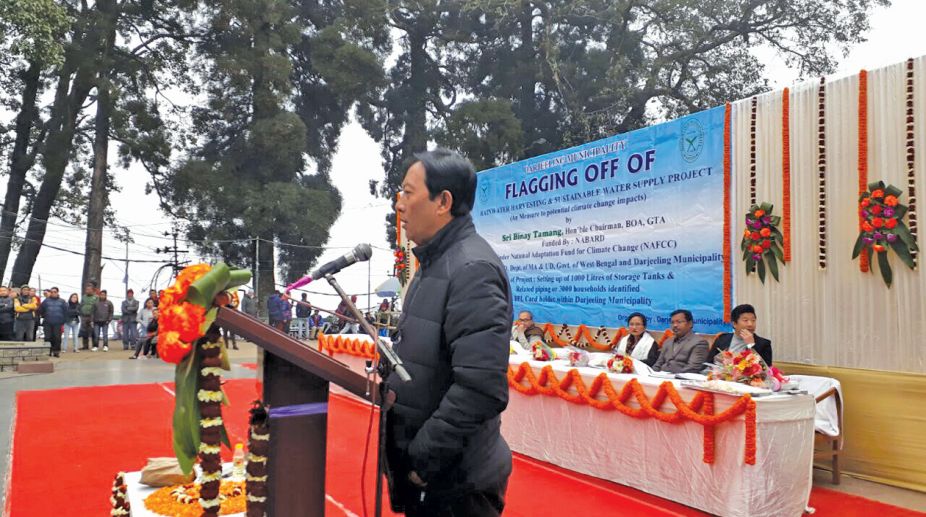Chief Minister Mamata Banerjee is all set to visit the Hills after a gap of about eight months from 6 February. The last time the CM was here was in early June last year when she held a Cabinet meeting at the Darjeeling Raj Bhavan, just before the unrest in the Hills began and spiralled into a fresh phase of the Gorkhaland movement that lasted for well over three months.
The shutdown that followed the unrest stretched for a full 104 days. While it was lifted in September and normality restored in the Hills, the CM had only been making visits to the plains in north Bengal and avoiding the Hills.
Advertisement
“We received information of the CM’s visit to the Hills yesterday only. She will arrive in Siliguri on 5 February and come here on the 6th. She will attend a police programme on 7 February, and as far as I know, the fourth round of the all-party meeting for the Hills will also be held in Darjeeling on the 8th.
The venue and timings will be fixed by the state government and the district administration,” Gorkhaland Territorial Administration Board chairman Binoy Tamang told reporters here on Friday.
He spoke on the sidelines of a programme at Chowrastha, where he inaugurated a rainwater harvesting project. Maintaining that welcome gates will be built for the chief minister’s visit and welcome groups will be in place, Mr Tamang, who is also a Gorkha Jan Mukti Morcha leader, said, “In the meeting, we will follow up on our various demands that we have made in the previous meetings, both through the GTA and politically too.
Some of our demands have already been met, like the salary for government office staffers for the shutdown period. The money for the same has already arrived at the treasury, while only the disbursement part is left.”
On the rainwater harvesting project, Mr Tamang said, “This project is funded by NABARD and is an initiative of the West Bengal Urban Development and Municipal Affairs along with the Municipality here. This is a project worth Rs 27 crores, 3,000 beneficiaries have been identified for the first phase.











